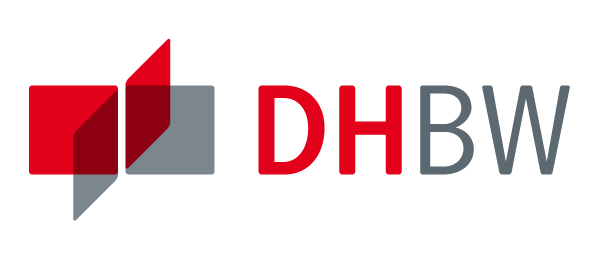Prof. Dr. Ulf-Daniel Ehlers
Veröffentlichungen
-
(2017) : Lifelong Learning. Holistic and Global Education In: Asia-Europe Foundation: 6th ASEF Rector’s Conference & Student’s Forum: "Future-ready Universities and Graduates: Quality Education Beyond the Horizon": Singapore: 09/10/2017 - 13/10/2017. ASEF. Online verfügbar unter http://www.asef.org/images/docs/ARC6_Commissioned%20Paper_EHLERS.pdf
-
(2017): Digitale Hochschulbildung – Abschied von der Universitas?. In: Zeitschrift für Erziehungswissenschaft (2), S. 47-57. Online verfügbar unter https://www.pedocs.de/volltexte/2018/15219/pdf/Erziehungswissenschaft_55_2017_Ehlers, Ulf-Daniel_Hochschulbildung_digital.pdf
-
(2017): Arbeitspapiere zur Hochschulforschung an der DHBW – Die Messung der Abbruchsneigung im Rahmen der ersten Erhebungswelle des DHBW-Studienpanels. Forschungsbericht. Stuttgart, 2017. Online verfügbar unter http://www.dhbw.de/fileadmin/user_upload/Dokumente/Schrifterzeugnisse/Forschungbericht_2_2017.pdf
-
(2016) : Qualitätskultur an der Hochschule In: AQ Austria - Agentur für Qualitätssicherung und Akkreditierung Austria: Qualitätskultur - Ein Blick in die gelebte Praxis der Hochschulen: Beiträge zur AQ Austria Jahrestagung 2016: Wien: Facultas Verlags und Buchhandels AG, S. 22-34
-
(2016) : Towards a theory for quality in education – An attempt on a fundamental concept In: European Distance and E-Learning Network: Forging new pathways of research and innovation in open and distance learning: 9th EDEN Research Workshop: Oldenburg: 4. - 6. Oktober
-
(2016): Unterwegs - Die ganze Welt der Offenheit - ein (Welt-)Reisebericht. In: Synergie - Fachmagazin für Digitalisierung der Lehre (2), S. 84-88. Online verfügbar unter https://www.synergie.uni-hamburg.de/de/media/ausgabe02/synergie02-beitrag09-unterwegs.pdf
-
(2016) : Monitoring Progress on Open Education in Germany In: European Distance and E-Learning Network: Forging new pathways of research and innovation in open and distance learning: 9th EDEN Research Workshop: Oldenburg: 4. - 6. Oktober, S. 186-199. Online verfügbar unter http://www.eden-online.org/wp-content/uploads/2016/10/RW_2016_Oldenburg_Proceedings.pdf
-
(2016) : Open Educational Resources in Germany In: Miao; Fengchun; Mishra, Sanjaya; McGreal, Rory (Hg.): Open Educational Resources: Policy, Costs and Transformation, 6, S. 87-98. Online verfügbar unter https://www.researchgate.net/publication/327395458_Open_Educational_Resources_in_Germany_Open_Educational_Resources_Policy_Costs_and_Transformation_Open_Educational_Resources_Policy_Costs_and_Transformation
-
(2016) : Anreizstrukturen in der E-Learning-Strategie der DHBW. Das Projekt MoQiK- Inverted Classroom in der Wirtschaftsinformatik.. FH St. Pölten am 23. und 24. Februar 2016 In: Haag, Johann; Freisleben-Teutscher, Christian F. (Hg.): Das Inverted Classroom Modell - Begleitband zur 5. Konferenz "Inverted Classroom and Beyond 2016": Brunn am Gebirge, Osterreich: ikon VerlagsGesmbH, S. 77-86
-
(2015): Qualitätsbericht der DHBW. Qualität in Studium & Lehre 2015. Ergebnisse aus der Evaluation 2015 für die Bachelor-Studiengänge der DHBW 2015. Online verfügbar unter http://wwwlehre.dhbw-stuttgart.de/~flaemig/ABL/2017-03/Anlagen/Q-Bericht%202015.pdf
-
(2014) : Enhancing the experience of online users of open education In: ICWOAL: International Conference on Web and Open Access to Learning (ICWOAL): 25-27 Nov. 2014. International Conference on Web and Open Access to Learning; Benlamri, Rachid; ICWOAL: Piscataway, NJ: IEEE
-
(2014): Qualitätsbericht der DHBW. Qualität in Studium & Lehre 2014. Ergebnisse aus der Evaluation 2014 für die Bachelor-Studiengänge der DHBW 2014. Online verfügbar unter http://wwwlehre.dhbw-stuttgart.de/~flaemig/ABL/2016-03/Zusatz_infos/Qualit%C3%A4tsbericht_der_DHBW_2014.PDF
-
(2013) : Qualitätssicherung im E-Learning. Veränderungen durch derzeitige Technologien und Konzepte In: Ebner, Martin; Schön, Sandra (Hg.): Lehrbuch für Lernen und Lehren mit Technologien: 2. Aufl.: Berlin: Epubli, S. 301-310. Online verfügbar unter https://www.pedocs.de/volltexte/2013/8355/pdf/L3T_2013_Ehlers, Ulf-Daniel_Qualitaetssicherung.pdf
-
(2013) : Evaluation as Quality Methodology for (E-) Learning in Europe In: EFQUEL – European Foundation for Quality in e-Learning: IMPROVING QUALITY OF VOCATIONAL TRAINING – TOOLS, FRAMEWORKS AND CURRENT PRACTICES. Unter Mitarbeit von Anne-Christin Tannhauser und Sandra Feliciano. Online verfügbar unter https://www.researchgate.net/publication/260423468_Evaluation_as_Quality_Methodology_for_E-_Learning_in_Europe
-
(2013) : Higher education Quality as an organisational Culture In: Szűcs, András; Tait, Alan; Vidal, Martine; Bernath, Ulrich (Hg.): Distance and E-learning in Transition: Learning Innovation, Technology and Social Challenges: London: Wiley (ISTE)
-
(2012): Open learning recognition. Taking open educational resource a step further. Unter Mitarbeit von Claudio Dondi, Ulf-Daniel Ehlers, Cornelia Helmstedt, Katja Kamšek, Christian M. Stracke, Jörg Szarzynski und Ivan Train. Bruxelles. Online verfügbar unter https://www.researchgate.net/publication/260423351_Open_learning_recognition_Taking_open_educational_resources_a_step_further
